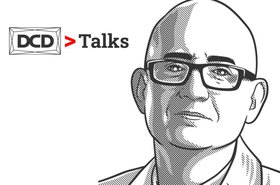In a digital world increasingly dependent upon data, technology, and energy, it is a priority to have a reliable and sustainable supply of electricity.
Power outages due to utility grid failures, inclement weather, natural or man-made disasters, or onsite electrical failure can put data centers at high risk of operational loss.
A key part of a data center emergency operations plan includes backup power supply, because reliable and uninterrupted power to data centers 100 percent of the time is critical for operations.
Backup generators are a critical component to ensure the data center has the uninterrupted power it requires in the case of an emergency.
Let’s start out with the benefits of generators in your data center. They provide peace of mind and allow you to ride out power outages with no downtime.
However, they get a bad reputation for not being environmentally friendly due to carbon dioxide emissions and other harmful pollutants emitted during operation. This begs the question: if we have a need for them in our power lineup, how do you decrease the emissions to better appreciate the benefits a generator can offer?
Working to make data centers sustainable is essential from both a financial and environmental point of view, and the efforts Kohler is undertaking are reflective of this.
Data center operators are continuously searching for ways to maximize the impact of their sustainability initiatives and incorporate energy efficient design into their facilities. As a critical piece of the power system, generators have come a long way in energy efficiency and design innovations to lower carbon emissions.
Modern diesel engine designs incorporate cutting-edge technologies that enhance operating efficiency through improvements such as a better combustion process, charge air cooling, and assemblies with a finer degree of tolerance. In short: modern engines run more efficiently and emit less pollution while providing the same or better levels of reliability.
These efficiency and design improvements enable generator operators to revisit assumptions that are based on long-standing engine operating and maintenance best practices.
With these improvements, maintenance and operational procedures can be adjusted to deliver value economically and sustainably, all while ensuring reliability, optimal performance, and simplified management of data center resources.
One such improvement is the ability for diesel engines to run at low-load without wet-stacking. The benefit to data center operators is a revised maintenance schedule for monthly testing of generators.
Engines, such as the Kohler KD Series, can be exercised monthly at no-load. In fact, they only require a loaded exercise one time per year. The benefits to both operations and sustainability are significant.
Fuel burn is reduced up to 40 percent per year and pollutant emissions from monthly testing, are reduced over 80 percent. Data centers can achieve these efficiencies without violating any standards or regulations, such as NFPA110, or sacrificing reliability of the standby power system
Sustainability focused improvements of standby power systems powered by internal combustion engines are critical to sustainable operation of data centers for at least the next 10 years.
Carbon free and zero emissions technologies are emerging but will take at least another decade to reach a scale that can provide equivalent performance, economic, and sustainability advantages of diesel-powered assets.
For instance, battery storage lacks the ability to provide ongoing power to data center during an outage. Hydrogen fuel cells lack a commercial source of Green Hydrogen. Either technology also requires the build-out of a sustainable energy grid to support them and realize the zero-emissions benefit that each technology promises.
A lot of investment has been put towards these sustainable solutions, and Kohler is invested in the right technologies to stay ahead of what’s next. But in the meantime, diesel will continue to be there, and data center operators should be able to take advantage of newer, more efficient technologies, thereby creating real impact through continuous improvement.
More from Kohler
-

Sponsored Optimizing data center power provision using a building-block approach
The diversification of data center architectures means that buyers should make sure their genset suppliers can optimize designs for a wider range of uses and locations, says Kohler's Richard Russett
-

Sponsored The sustainability collaboration opportunity
Why as an industry, we can achieve so much more together
-

Sponsored Evolving generator maintenance to achieve real sustainability improvements
Are old load-banking and maintenance procedures causing you new problems?


